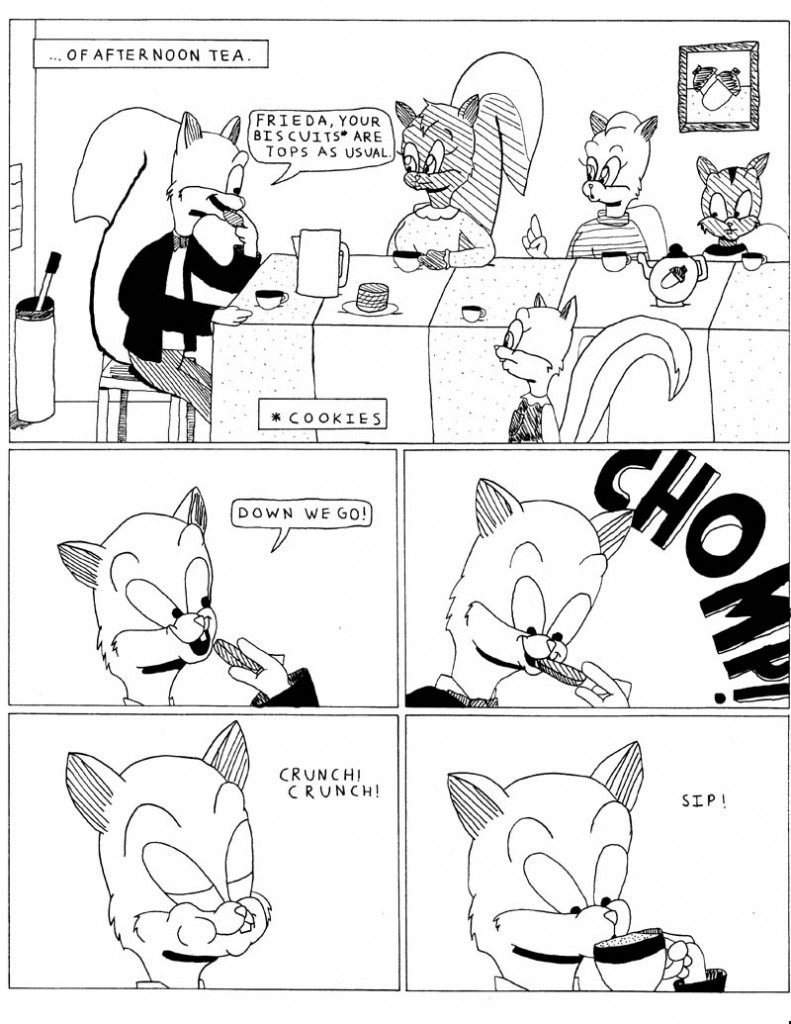
If you remain active and maintain a presence on the web, you will gradually attract interest. Social media can be wielded to locate potential audiences for your comic. As a solo creator, marketing is a different animal.Marketing takes many forms: press releases sent to media outlets, advertisements (both print and web), sending advance copies to the media, and coverage on the convention circuit.Marketing a comic is an ongoing process that happens parallel to the production of the comic.If your budget is especially limited you can photocopy your comic at a business that offers printing services.Self-published comics can be financed through personal investment or fundraising through means such as Kickstarter. This process can take several weeks depending on the size of the order.If the comic is being sold as a physical product, it is submitted to a printer where a certain number of copies are printed based off of sales estimates.Because of this some or all of the following steps may be combined or skipped. Digital comics, including webcomics, may not have an editor or be intended for release in print.

While active throughout the comic-creation process, at this phase the comic’s editor gives it a last minute check-over in order to fix or resolve any remaining content issues prior to publication.Letterers generally work on a computer although some letter by hand.From the thumbnail stage onward, consideration is taken for proper placement of dialog balloons so that they don’t compete with the composition or cover important art.After the comic art is complete a letterer inserts dialogue balloons/boxes into the panels of the comic and places all of the text.Comics intended to be black and white skip this step.Instead they should compliment or enhance it. The idea for this stage is that the colors not compete with the lineart.The final lineart of the comic is handed off to the colorist who uses a computer (in most cases) to color the black and white images.Some artists skip pencilling altogether and draw in ink.Inkers use a variety of subtle techniques to affect light and shadow in a composition.More than simply “tracing” the pencils, an inker makes choices based off of which lines are necessary for the finished image and can correct earlier problems in the pencilling phase.The inker is responsible for taking the rough pencils provided by the penciller and using them as a guide to produce the final lineart of the comic in ink.The advent of digital comic production affords artists the option of pencilling within a program like Photoshop.Some pencillers skip the thumbnailing stage and work out their panel compositions directly on the page.
Example of simple comic book singer full#

In some cases, a single creator will handle all aspects of art by themselves.


I will explain the difference between the two in a bit. There are two common methods for scripting a comic, the Marvel Method (plot style) and full script (sometimes referred to as “DC style”).The writer, using the plot outline as a guide, writes the script for the comic.Think of this as the planning stage for how the story unfolds.All of the story elements are arranged with consideration for pacing and character development.The basic concept for the comic is expanded by the writer into a workable story outline.The central concept for a comic can come from anyone, but is typically developed off of a writer or editor’s idea for a storyline.To create a great comic you need to first start with a great idea. This is the starting point of the project.Read over this sequence to familiarize yourself with the general components of comic creation, after which point I will address a few elements in greater detail. Dude made a lot of comics.Ĭomics go through several stages from conception to completion.


 0 kommentar(er)
0 kommentar(er)
